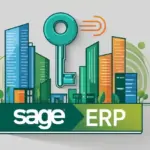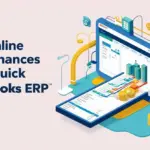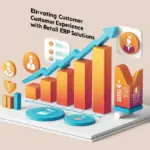Imagine managing your company’s entire financial life—budgets, forecasts, statements, and reports—from one dashboard that you can access anytime, anywhere. That’s the magic of cloud financial software. It’s not just accounting moved online—it’s a complete transformation of how businesses handle finances.
Unlike traditional on-premise solutions that require manual updates and hardware installations, cloud-based systems live online. They’re automatically updated, highly secure, and incredibly scalable for growing businesses.
Why Businesses Are Switching to the Cloud
Let’s be honest—time is money. Traditional financial systems can be slow, clunky, and frustrating. Cloud-based platforms, on the other hand, streamline workflows, cut down errors, and deliver real-time insights.
Still using spreadsheets and endless email threads? With cloud platforms, you can say goodbye to version control issues and hello to real-time financial data.
How Does Cloud-Based Financial Software Work?
Work From Anywhere, Anytime
With cloud-based financial tools, your office is wherever you are. Whether you’re sipping coffee at home, commuting, or traveling for business, you can log in from your phone, tablet, or laptop. Need to review a financial statement or approve a budget request? It’s all just a few clicks away—no more being tied to a single office computer.
Instant Access to Up-to-Date Financials
Forget waiting for end-of-month summaries or hunting down the latest spreadsheet version. Cloud financial software keeps everything updated in real time. Every transaction, report, and forecast is synced automatically, so your data is always accurate, consistent, and ready when you need it. That means faster decisions and fewer surprises.
Top Features to Look For in Cloud Financial Software
1. Budgeting Tools
Whether you’re a nonprofit organization, a growing startup, or a global enterprise, you need strong budgeting capabilities. Look for systems that offer powerful business budgeting software or budgeting software for nonprofits to keep spending on track.
2. Forecasting & Planning
Strong financial forecasting software helps businesses anticipate future revenue, manage cash flow, and prepare for uncertainties. Leading FP&A software solutions let you build detailed what-if scenarios without the need for complex formulas.
3. Financial Close Capabilities
The end-of-month close doesn’t have to be a nightmare. The right financial close software can automate reconciliations, reduce closing times, and ensure accuracy across departments.
4. Consolidation & Multi-Entity Support
For businesses with multiple locations or international subsidiaries, best consolidation software makes it easy to unify reports, currencies, and tax structures without manual intervention.
5. Statement Reporting & Analytics
Need to impress investors or your board? Choose platforms with robust financial statement reporting software that offer visual dashboards, customizable reports, and deep analytics.
Benefits of Cloud-Based Financial Systems
Scalability for Growing Teams
Unlike traditional software, cloud platforms scale as your company grows. Whether you’re hiring a few more staff or acquiring a new company, cloud systems make onboarding fast and painless.
Collaboration and Transparency
Cloud platforms allow team members, accountants, and stakeholders to work together in real time. Everyone sees the same numbers, the same reports, and the same story—no miscommunication.
Cost Savings
Cloud solutions typically follow a subscription model, which means no huge upfront costs. Plus, they reduce IT maintenance expenses and lower the need for in-house infrastructure.
Who Should Use Cloud Financial Software?
Small Businesses
If you’re running a lean team, cloud tools can automate repetitive tasks and help you stay compliant without needing a full finance department.
Nonprofits
Managing grants, donations, and operating expenses? Cloud software tailored for nonprofits simplifies reporting and ensures every dollar is accounted for.
E-commerce Businesses
If you run an online retail store, you’ll want the best accounting software for online retail business—a cloud solution that integrates with inventory systems and tracks orders, taxes, and returns in real time.
Large Enterprises
Need robust enterprise budget software or consolidation tools? Cloud platforms support complex financial structures, multiple entities, and global operations without lag.
Is Cloud Financial Software Secure?
You bet. Top providers use bank-level encryption, role-based access, multi-factor authentication, and regular security audits. Your financial data is likely safer in the cloud than on an on-premise server vulnerable to crashes or theft.
Common Integrations You Should Expect
Great financial software doesn’t live in a silo. Look for tools that integrate with:
- Payroll systems
- HR platforms
- CRM tools
- Inventory software
- E-commerce stores
The more integrations, the more complete your financial picture.
How Cloud Financial Software Supports FP&A Teams
FP&A (Financial Planning & Analysis) is the brain behind smart business decisions. And the right software FP&A teams rely on can make or break performance.
Here’s how cloud systems help:
- Automate data collection
- Enable real-time scenario modeling
- Connect strategic goals to budget allocations
- Improve accuracy and forecasting agility
How to Choose the Right Cloud Financial Software
Assess Your Business Size and Needs
A solo entrepreneur has very different needs compared to a company with five international branches. Don’t pay for features you’ll never use—but don’t shortchange yourself either.
Prioritize Ease of Use
If the software isn’t user-friendly, it won’t be used. Look for intuitive interfaces, easy onboarding, and strong customer support.
Check for Compliance Tools
Ensure your software supports compliance with tax regulations, GAAP/IFRS standards, and industry-specific requirements.
Read the Reviews
Sites like G2, Capterra, and TrustRadius offer real user reviews that can give you the real scoop.
Signs You’ve Outgrown Your Current System
- You’re still using spreadsheets for financial reporting
- Your closing process takes over a week
- Forecasting takes longer than making coffee
- You’re constantly emailing files back and forth
- Your financial data lives in silos
If any of these sound familiar, it’s time to upgrade.
Future Trends in Cloud Finance Tools
AI-Powered Financial Insights
AI is transforming how businesses analyze spending, detect anomalies, and automate forecasting.
Mobile-First Experience
Expect to see more apps designed for mobile use, empowering remote teams to manage finances on the go.
Embedded Finance & Automation
From embedded payroll to smart payment scheduling, cloud platforms are becoming end-to-end financial ecosystems.
Popular Cloud Financial Software Options
Here are some of the top tools in the market:
- NetSuite – Great for mid-sized to enterprise-level businesses
- QuickBooks Online – Perfect for small businesses and freelancers
- Xero – Popular with startups and international teams
- Sage Intacct – Known for its robust reporting and integrations
- Oracle Cloud ERP – Best for large, complex organizations
Each platform has its strengths depending on your industry, size, and financial goals.
Getting Started with Cloud Financial Software
Making the switch may seem daunting, but most providers offer:
- Free trials or demos
- Data migration assistance
- Onboarding support
- Training resources
Take the time to explore and test before committing.
Final Thoughts
Cloud financial software isn’t just the future—it’s the now. From financial forecasting software to business budgeting software and financial close software, these platforms are built to empower smart financial decisions.
If you’re tired of outdated tools and ready to simplify your workflows, reduce errors, and gain real-time visibility, it might be time to make the leap.
And hey—if your competition is already doing it, do you really want to be left behind?






